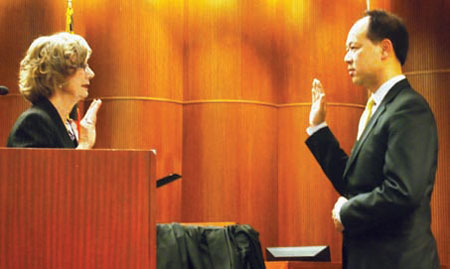 Numerous “best practices” were on display in domestic violence criminal court yesterday. When survivors participate in criminal trials they deserve nothing less.
Numerous “best practices” were on display in domestic violence criminal court yesterday. When survivors participate in criminal trials they deserve nothing less.
One case on yesterday’s criminal domestic violence docket in Silver Spring involved a defendant who pled guilty to violating a protective order. He had approached the mother of his child despite a final protective order banning him from doing so. She immediately locked herself in her car and called the police. Since being served, he had also called her repeatedly.
Judge Nee ordered the defendant both to the County’s Abuser Intervention Program and to a parenting class. He took the time to look at the broad issues facing the couple and their child, and realized that the protective order needed revision to provide for safe visitation. He inquired as to whether the petitioner was receiving emergency financial funds from the defendant as part of her protective order. He asked the petitioner to file a motion to have him hold a hearing on the protective order, since he was already familiar with the case and understood what needed to be changed. Judge Nee then made sure the defendant waited in the courtroom for 15 minutes after the survivor left to ensure her safety.
Looking holistically at domestic violence cases, across both criminal and civil cases, can increase the chances of finding practical solutions that de-escalate tensions, ensure needed services are required, and better protect mothers and children.